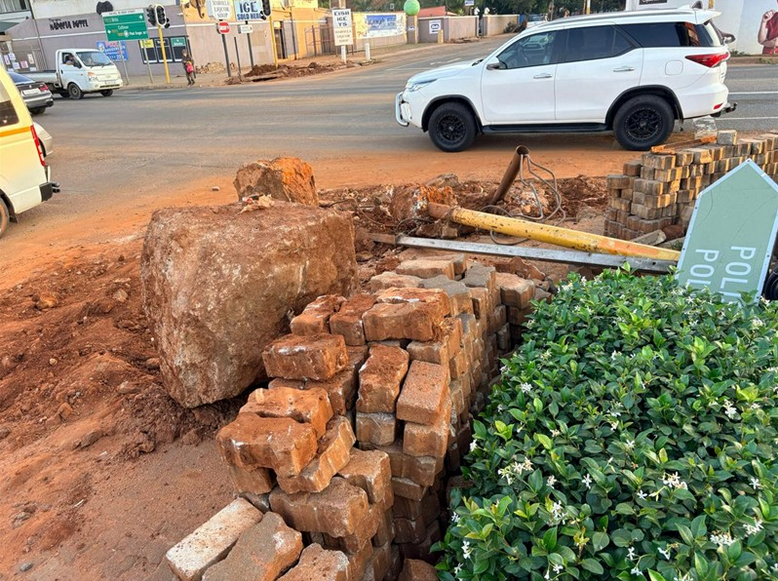How to grow your career in construction

Advertising
07-10-2019
Read : 190 times
Bizcommunity.com
Source
When starting out or moving into a different speciality in the construction industry, the best thing you can do is to study after matric, to at least NQF level 7, and/or get your foot in the door with a company that has multiple contracts (and offers training), as this will offer the best opportunities to gain experience and get involved in different projects. By studying and gaining experience, you'll become skilled in various fields, and/or specialise in a specific field.
How to become a manager or set-up your own construction business
“When it comes to construction management, it is imperative to know your trades and get quality tradesmen, and not fly-by-nights,” advises Lee Lawrence, Construction Manager at The Maintenance Network. He goes on to explain that, in order to ensure quality workmanship, you’ll also need to get to know the various products on the market and processes of application and work. This ties in with planning and costing, which can only be learnt through practical experience, including what quantity and products are needed for a job, what manpower is needed – tradesmen, labour, out-sourced contractors - as well as transportation and fitment fees. “These are all very important factors to take into consideration in order to plan effectively and efficiently, and avoid the possibly detrimental result of under quoting for a job.
“Furthermore, you’ll need to become accustomed to planning rules and regulations (often learned through experience) – the best way to learn is to start from the bottom and work your way up the ladder to gain priceless knowledge and experience from professionals which you can use later in your own business, or when you move up the ladder,” he says.
In order to start your own construction company, you will need to build up enough capital to finance yourself, or you will need to find an investor to finance your costs until you start making a profit.
Upskilling yourself, learning compliance regulations and how to set up contracts
Mark Massyn and Karen Le Jeune, Senior Lecturers from the University of Cape Town’s (UCT) Department of Construction Economics and Management, and course conveners on the UCT Construction Management short course from GetSmarter, advise that individuals and companies looking for opportunities to upskill and gain practical training can look into Local Master Builders Associations for advice, as well as individuals and companies wishing to further their training and skills, and short courses that offer in-depth theoretical training.
Massyn and Le Jeune explain: “The quickest route into a career in construction management is obtaining a qualification at an accredited institution such as a university of technology or university (such as UCT). Another structured educational alternative is to register for a diploma in construction at a Technical and Vocational Education and Training (TVET) college. Some construction companies offer internships linked to learnerships in construction that are offered by registered service providers. A modern approach is to register for a suite of online courses (such as the UCT Construction Management online course offered by GetSmarter) that provide competencies as required whilst working full-time.”
Website referrals are a good way to get contracts and market the company, as well as through social media and traditional forms of advertising, but the ultimate marketing tool in the construction industry is word-of-mouth so always ensure your client is happy at the end of the day as chances are, they will be the source of further contracts in the future.
Bidding for government tenders and finding gaps in the market
Government tenders and new developments are also good investment areas to look into.
Construction companies who wish to do business with the government need to be BBBEE compliant, have a tax clearance certificate, be registered with the BIBC (Building Industry Bargaining Council) as well as registered with the cidb (Construction Industry Development Board).
In addition, construction companies wanting to tender for public works (e.g. schools/hospitals) should register with local municipal and provincial procurement portals.
Massyn and Le Jeune comment that: “Other opportunities in the industry to make money lie in operating in a market where you aren't competing with a high number of other contractors, such as in providing alteration and refurbishment services, competent maintenance services, providing alternative sustainable (green) construction solutions, etc. A timeless gap in the market exists for ethical and professional contractors who gain a reputation for excellence in delivering a project on time, within budget and meet the client's expectations and the designer's specifications.”
When asked where they see the industry in 5-10 years’ time, Massyn and Le Jeune observe as follows:
“The South African construction industry has been slow to catch up on global trends that are changing the way in which the production process is managed. MCM - modern construction methods or off-site construction (also referred to as pre-fabrication) allows for greater quality, better control and time management as well as creating a safer working environment. Rolling out the impact of the 4th Industrial Revolution means embracing concepts such as 3D printing, robotics, virtual reality, BIM, and therefore needs young people who are up for the exciting challenge that the construction industry holds.”
Recent News
Here are recent news articles from the Building and Construction Industry.
Have you signed up for your free copy yet?









